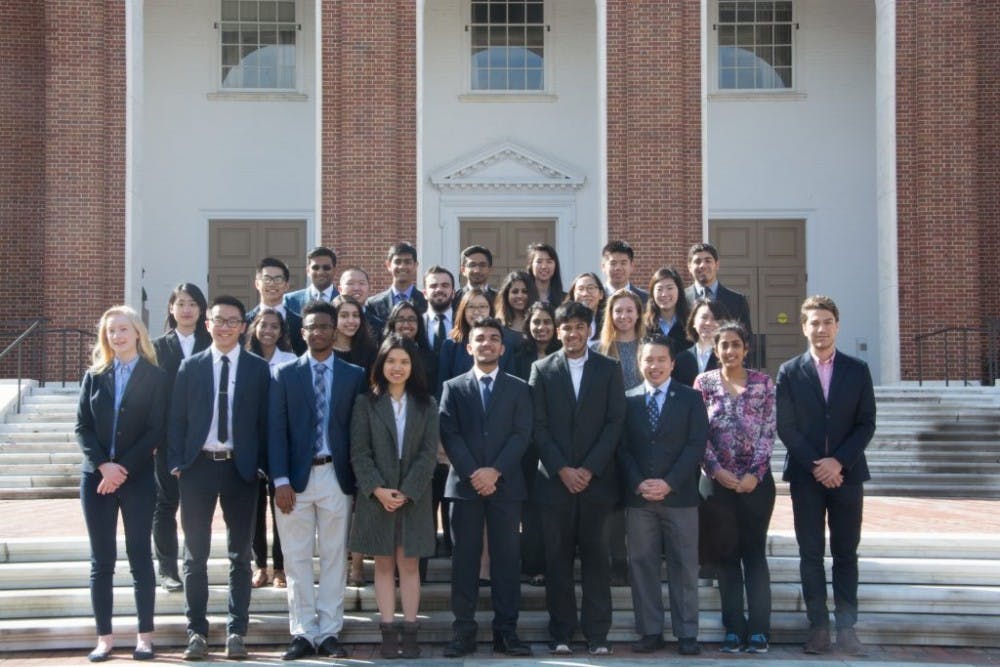Hippocrates Med Review (HMR), a new student-run journal that seeks to make medical topics more accessible to the public, launched its online publication on Saturday, April 21.
HMR consists of 26 writers and 26 staff members and plans to release articles on a variety of health topics, from genome editing to the use of personal stories in medicine. Rushabh Doshi, HMR’s editor-in-chief, said that the publication’s goal is to make medical news more accessible so that ordinary people can be more informed about health science and policy.
According to Doshi, HMR is unique because it enlists the help of the humanities departments to explain science. The team wants to highlight the medical humanities, a growing interdisciplinary field that studies the social influence of medicine.
“We wanted... a new approach where we’re reporting groundbreaking medical news to people in a way that they can read it and actually understand it,” Doshi said.
HMR is funded by the Alexander Grass Humanities Institute (AGHI), which is directed by Professor William Egginton of the German and Romance Languages and Literatures Department. He also serves as HMR’s advisor.
“AGHI has agreed to serve as the faculty sponsor for HMR because of its commitment to medical humanities in addition to the other areas of student medical writing it covers,” Egginton wrote in an email to The News-Letter.
He also praised HMR’s editors for promoting the medical humanities on campus.
“The editors feel that medical humanities are a distinctive aspect of their new review and one they would like to highlight,” he wrote. “I agree with the editors that HMR is a distinct and exciting platform for undergraduate writing and research in the medical sciences.”
Doshi was encouraged by student interest in HMR. The journal received around 120 student applications for staff positions. Writers and editors were interviewed and then split into five focus areas — Clinical Medicine, Domestic Health, Global Health, Biotechnology and Medical Humanities — which serve as the main sections of the journal.
Doshi wanted writers from a diverse array of disciplines to offer a comprehensive perspective on the future of medicine. He said that members of HMR come from many different majors ranging from Writing Seminars to Molecular and Cellular Biology.
“Instead of just looking at clinical medicine... they’re looking at it through different lenses,” Doshi said. “This really gives us the opportunity to look at medicine holistically.”
After its launch, HMR has long-term plans to formalize its presence at Hopkins and other universities like the University of Pennsylvania, Columbia University and Harvard University.
“Next semester, what we really want to do is expand into the Baltimore community and... all over the world,” Doshi said.
According to Global Health Section Head sophomore Linh Tran, they hope to release their first print magazine at the end of the semester and to publish issues once every three weeks. They plan to focus more on Hopkins by interviewing Hopkins scientists and physicians. Tran says the organization is also considering publishing more opinion-based content.
“In the future, they want opinion section columns... but only after writers have been writing for the journal a certain amount,” she said.
Doshi added that HMR wants to collaborate with faculty to establish an editorial board.
“We’re also in the process of creating an editorial board that [finds] three professors from each department that we want to feature... an editorial board will bring a lot of advice and experience to the team,” he said.
Sophomore Jeyani Narayan joined HMR because she wanted to communicate medical ideas to the public in a more accessible manner.
“I really liked their goal that they’re trying to change the way that medicine is viewed by the public and it always doesn’t have to be about jargon,” she said.
Narayan writes for the Domestic Health section and hopes to draw attention to patients with a more limited access to healthcare.
“My goal is to improve care for minorities and... particularly underserved women,” she said. “My goal is to increase awareness about the lack of care that minority patients [receive].”
Sophomore Tam Thanitcul pointed out areas where the publication can improve.
“I don’t like the font. It looks like a research paper, but the template is good,” he said. “Maybe they can do a survey of students doing research at Hopkins, anything original. They can also accept students who are not in the group.”
Sophomore Charlie Wang feels that HMR serves a valuable role on campus.
“There’s nothing that fills in the niche they are filling in,” he said.





